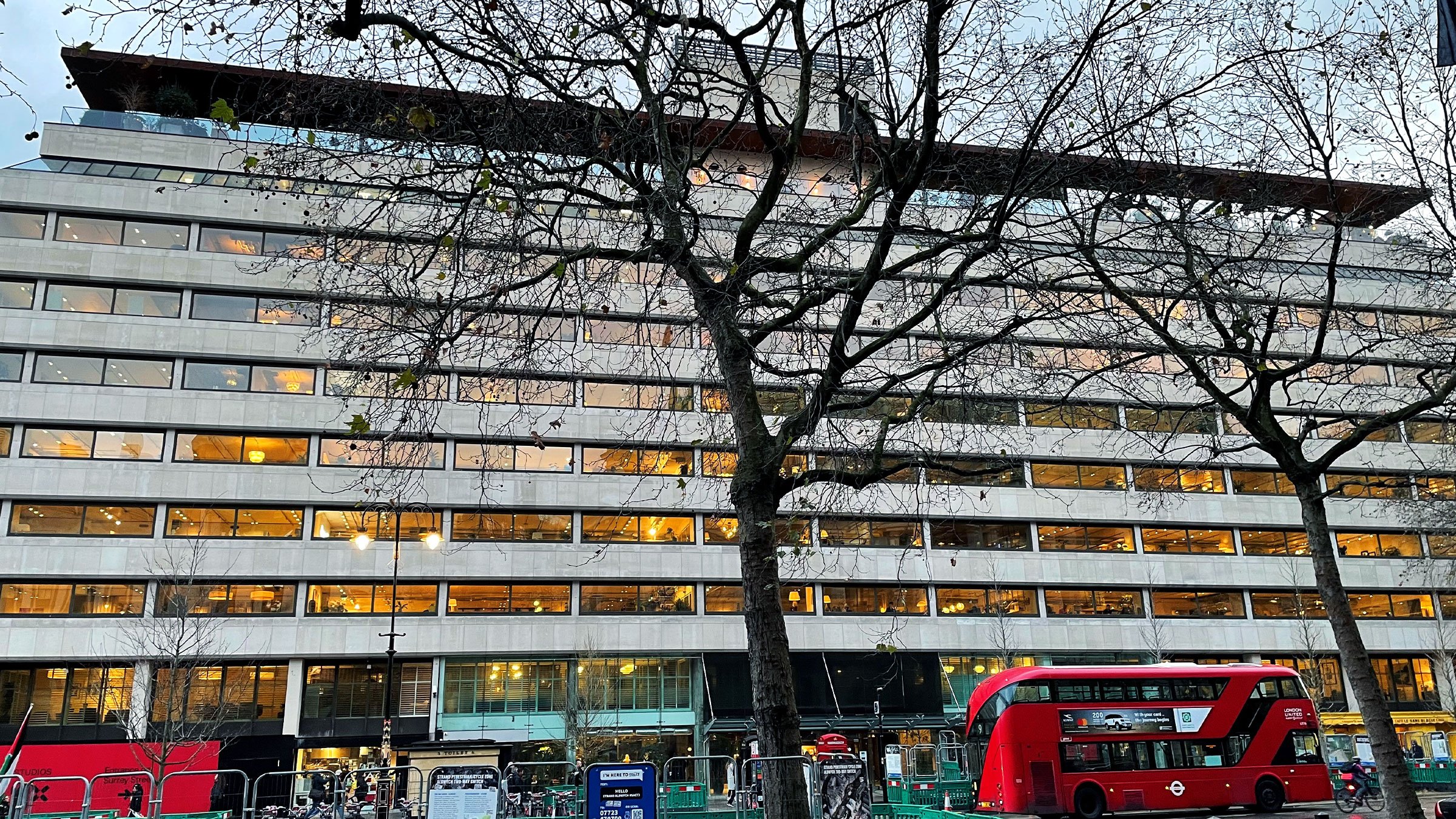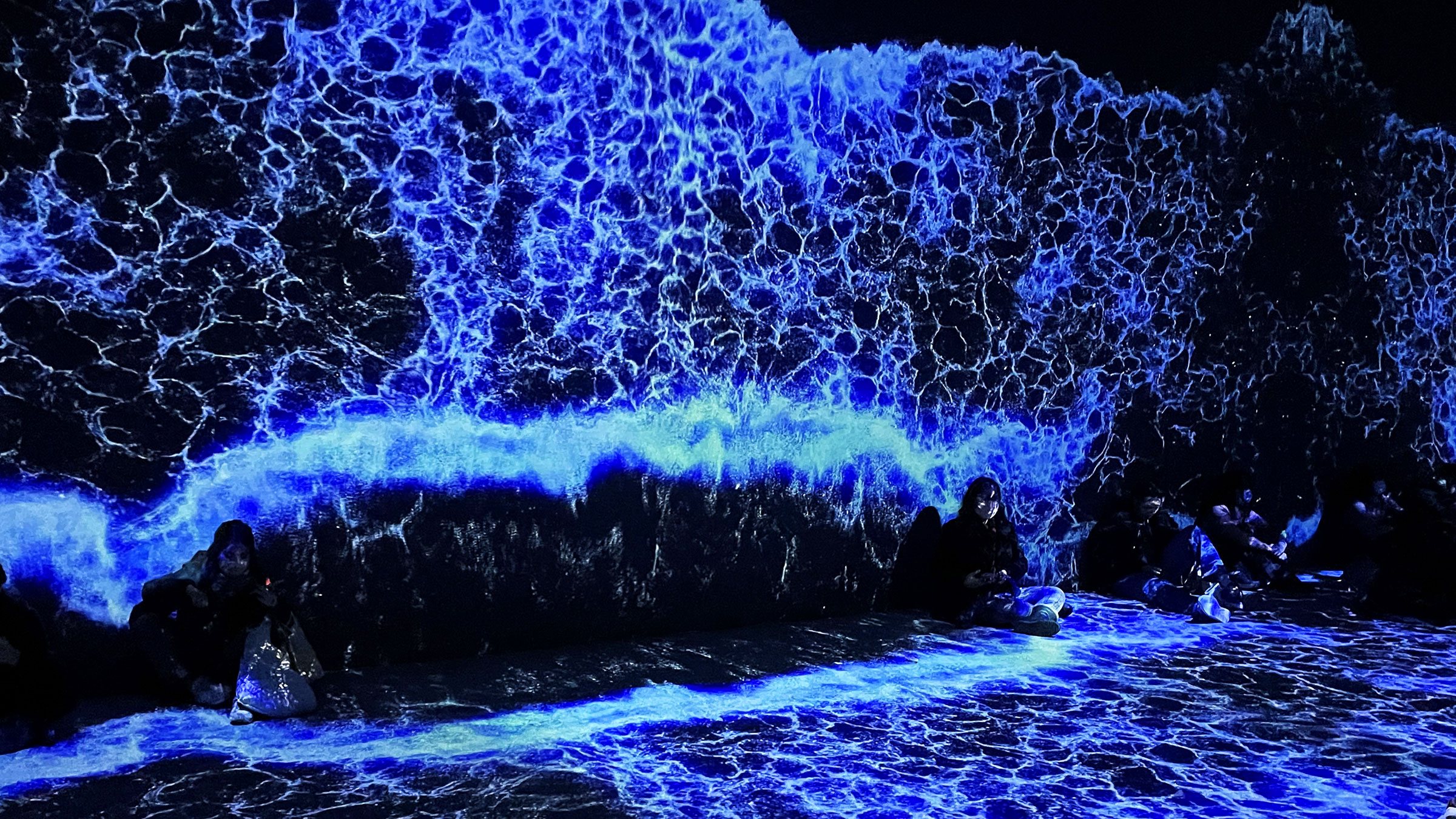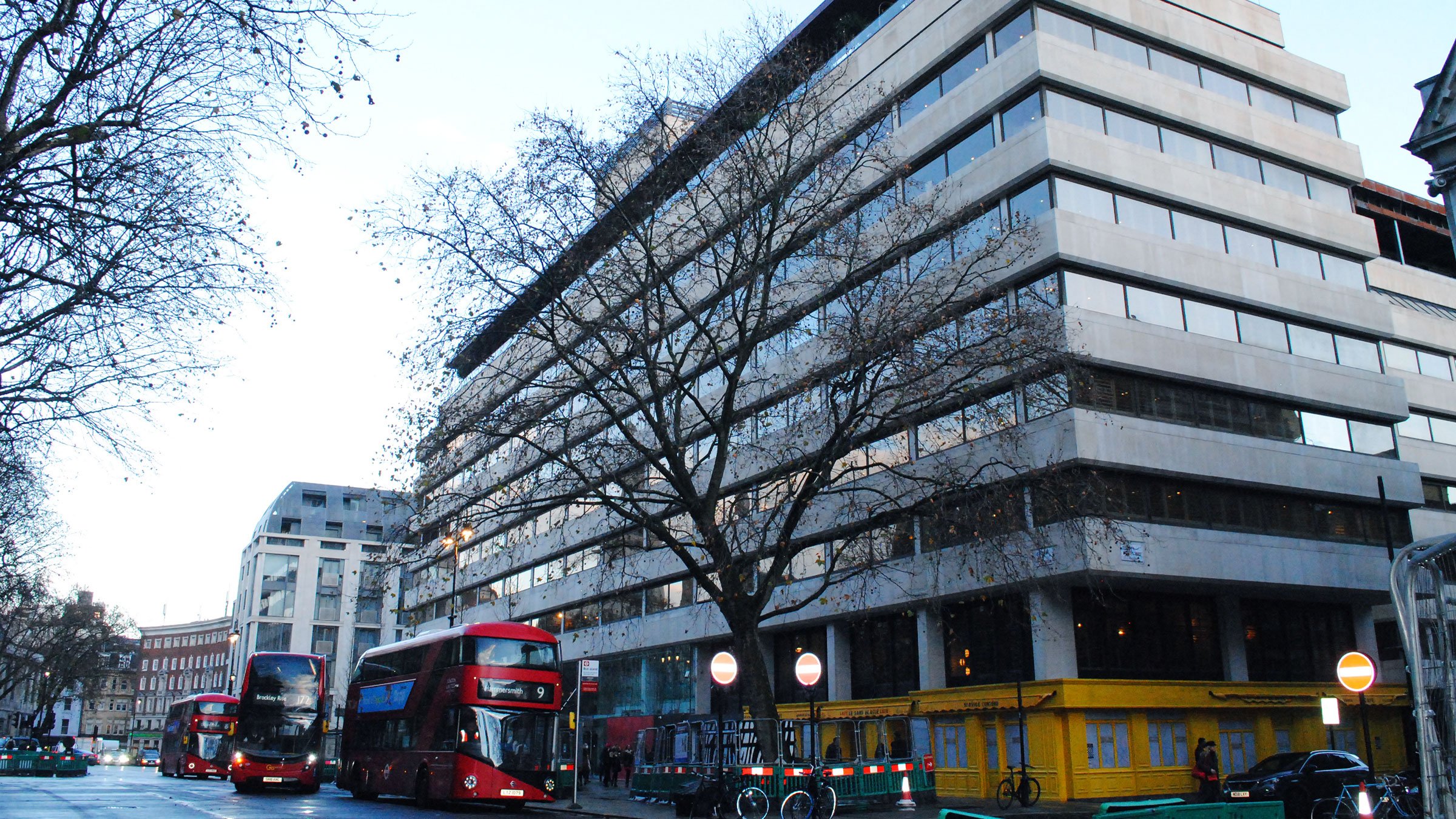If you take a drive down Kingsway from Holborn and get to the end of the road, the first building in front of you is the London landmark, Bush House. Majestic and grand, Bush House is a Grade II listed building envisioned as a major new trade centre by American industrialist, Irving T Bush. Conceived in 1919, work began in 1925 and the building was completed in 1935. By 1929, Bush House was declared ‘the most expensive building in the world’. The building served as the HQ of the BBC World Service, and broadcasting from there lasted over 70 years, from 1941 until July 2012. In 2015, the building was repurposed to become part of King’s College, London, the main campus on The Strand.
As you round the corner of Bush House, ready to take a right onto the Strand, looming out in front of you is a huge Brutalist building, which goes all the way round to Arundel Street on the one side and Surrey Street on the other. For many years, it seemed to stick out amongst the beautiful, classical buildings around Temple, which stretch from Somerset House along the Strand to the Art Deco building, the Savoy Hotel.
“That Brutalist building is now known by those in the know as 180 The Strand, and it has become a beacon of everything that is on the zeitgeist and up to the minute.”
That Brutalist building is now known by those in the know as 180 The Strand, and it has become a beacon of everything that is on the zeitgeist and up to the minute. The venue is located between Somerset House and the Inner Temple, and is the remaining part of the former Arundel Great Court, which was rebuilt in the ‘70s on the site where the Hampton Palace once stood. Fifty years ago, it was supposedly built to embrace modernist ideals. But by 2009, the building was judged obsolete and nicknamed ‘the Arundel not so Great Court’. Mayor at the time, Boris Johnson had even approved of its demolition.

However, in 2012, Mark Wadhwa bought the building and breathed new life into the structure. Mark, a property mogul and entrepreneur, has transformed the property into a cultural centre, allowing it to sit at the heart of London’s creative community and adding real vibrancy to this exciting part of London.
“Mark, a property mogul and entrepreneur, has transformed the property into a cultural centre, allowing it to sit at the heart of London’s creative community and adding real vibrancy to this exciting part of London.”
This is not the first project that Mark had a vision for. In 2000, he famously bought the EMI Records manufacturing complex in Hayes, Middlesex, which was being sold with the intention to be repurposed (at the turn of the millennium, people were no longer listening to records but buying CDs.) But Mark did not close down the plant. Instead, he kept the building true to its roots, and has since owned and operated The Vinyl Factory, which manufactures about 2.5 million records every year, using some of the original equipment and staffed by some of the employees who have worked there for decades. What Mark bought was piece of history, and in turn he supported a once-thriving industry in decline. To this day, The Vinyl Factory is the only major vinyl manufacturing plant left in the UK.
Mark’s commitment to the creative arts is felt deeply in his redevelopment of 180 The Strand. The renovation has only recently been completed, but during the eight years of its construction, it was used for events, fashion shows during London Fashion Week, and art installations as an extension of Frieze Art week.
At the building’s core is 180 Studios, a network of production and exhibition spaces that support emerging talent, providing a platform for creative growth. Juxtaposed alongside the studios in the building are offices of established players: the Dazed HQ is housed here; Charlotte Tilbury recently moved her head office from Hammersmith to 180, and TikTok have their offices here, too.

Soho House occupies the top two floors, with a restaurant on the eighth floor and a roof top swimming pool on the ninth, overlooking the City of London. And then there are eight floors of co-working space, Soho Works. What is different about 180 compared to, for example, Second Home or WeWork, is that creativity and culture is of equal importance to the working space itself. The culture balances experimental innovation and the support of young artists with established partnerships with some of the art world’s best institutions, like the Serpentine and the Hayward Gallery.
Especially clever is the canteen, which serves the working population in the building their lunch – very simple, with two pasta dishes a day and focaccia bread. At the other end of the spectrum, a new restaurant has opened in the building. Started by the founders of Freize, Mathew Slotover and Amanda Sharpe, Toklas is a new restaurant, bar, bakery and grocery shop with its entrance on Surrey Street.
Named after Alice B Toklas (who wrote a cookbook called Aromas and Flavours in 1955 and who was partner of the art collector and intellectual Gertrude Stein), it serves Mediterranean fish and vegetables. Toklas’ bakery serves bread, coffee, sandwiches and pastries and the grocery shop sells fresh fruit and veg, tinned goods and homewares.
But the best kept secret is on the Arundel Street side of the building. It describes itself as ‘a resource and cultural centre for a community bonded by art and literature’. There is no cost to access the library and research assistants are there to help you throughout the day. You can join with an After-Hours Membership to access the bar in the evenings and get free or priority tickets to their events, discounted books and limited-edition gifts.

Mark is certainly more than a property developer – he is a property developer with soul. Back in the day, he used to DJ at the best parties in London, often hosting events in the Poland Street and Brewer Street car parks which he owns. He is also one half of what I would call a power couple, married to Soho curator Alex Eagle – the founder and creative director of lifestyle retail concept Alex Eagle Studio and The Store X projects.
“Mark is certainly more than a property developer – he is a property developer with soul. Back in the day, he used to DJ at the best parties in London, often hosting events in the Poland Street and Brewer Street car parks which he owns.”
What was a stretch of London that lacked purpose is now a buzzing place to be and to be seen. Somerset House, which hosts the annual Contemporary African Art Fair 1-54 each year at the same time as Frieze, is becoming more and more important as interest in art from the global South is growing. And then of course there is the hidden gem, Spring restaurant where Chef Skye Gyngell has created a warm and beautiful dining space with views out towards the Thames in the New Wing of Somerset House.
Winter on The Strand is magical, as the neoclassical forecourt at Somerset House gets transformed into an ice-skating rink — this year, sponsored by Moet & Chandon who have decorated a 40ft Christmas tree with spectacular decorations. I hope to bump into some of you on The Strand, and, in the meantime, it is never too early to wish you all a merry Christmas.
Moira.benigson@thembsgroup.co.uk | @MoiraBenigson | @TheMBSGroup








